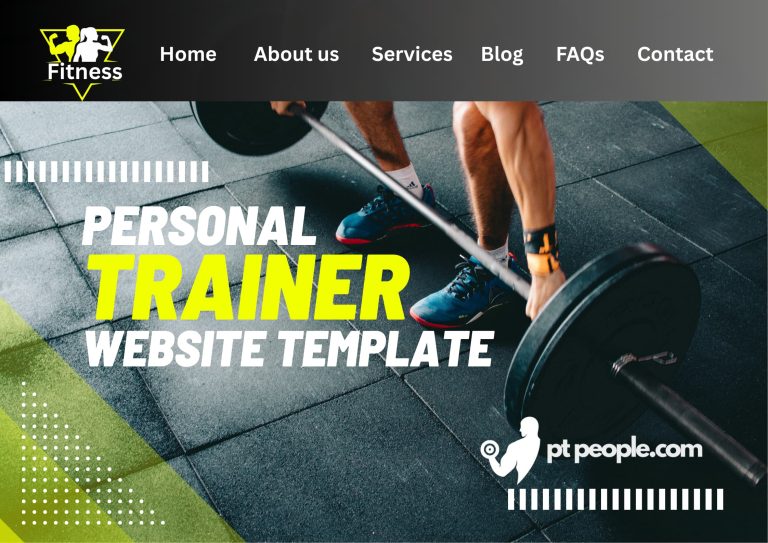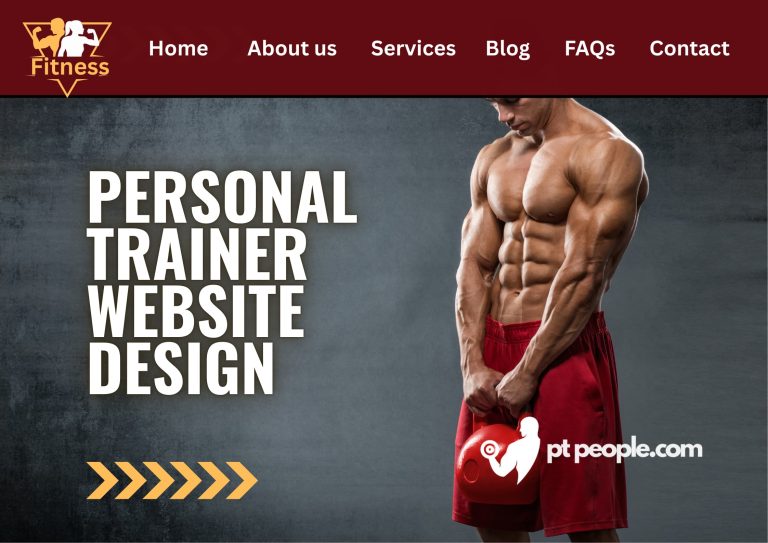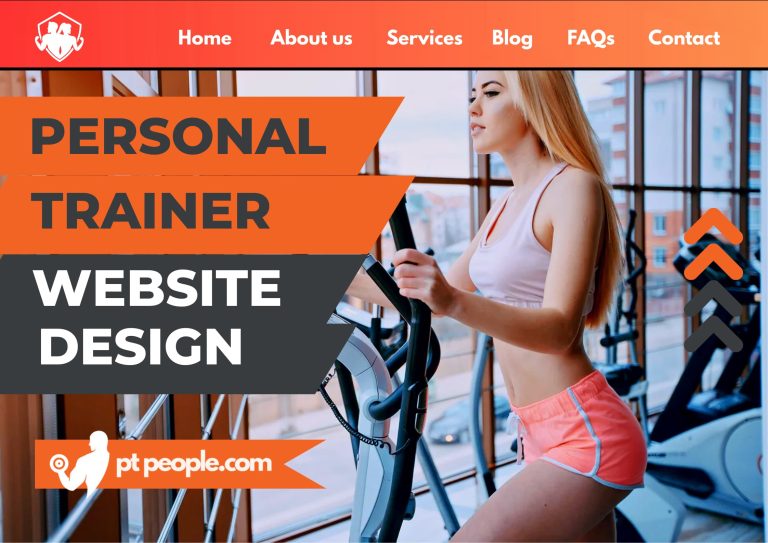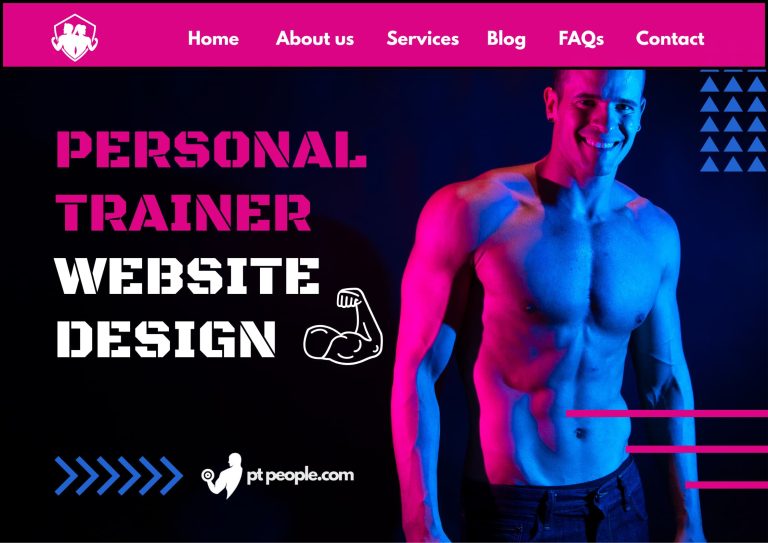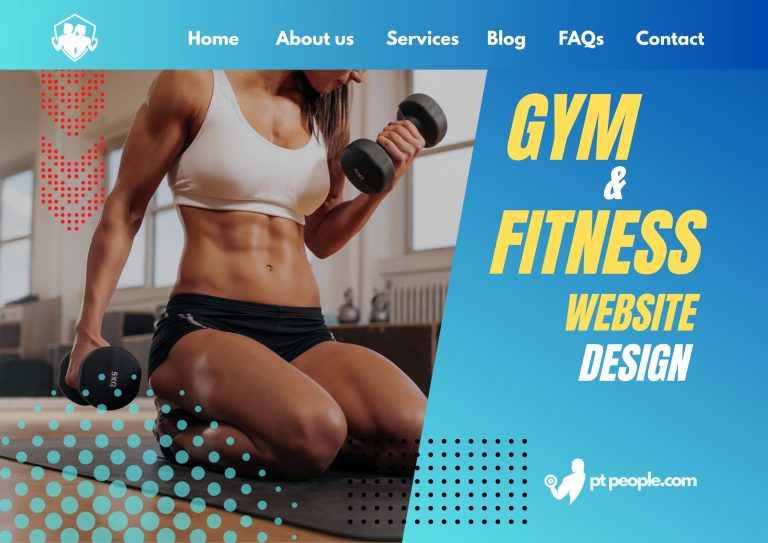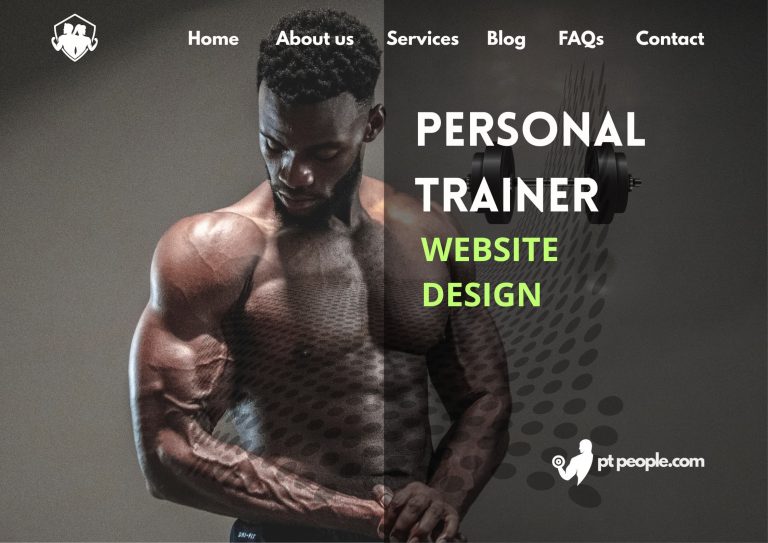
Build a Personal Trainer Website Fast
Welcome to your ultimate 2025 guide to building a personal trainer website that doesn’t just look good — it gets results. Whether you’re just starting out or leveling up your fitness business, your website can be your most powerful sales tool.
From booking more clients to showcasing your fitness expertise globally, you’ll discover everything you need to know. This article is packed with expert-driven advice, SEO-optimized content, and actionable steps to help you stand out online.
Let’s get into it.
Work with Highly Skilled Web Designers
You might be great at coaching clients through a deadlift, but building a high-converting website? That’s a different game.
Partner with a web design team that understands the fitness industry. A team like www.ptpeople.com specializes in building sleek, mobile-optimized, and lead-converting personal trainer websites.
Benefits:
- Custom branding to reflect your unique training style
- Mobile-first designs (key in 2025)
- Integrated booking systems
- Client testimonial and transformation galleries
1. Register Your Domain
Your domain name is your online identity. Choose a name that matches your business and is easy to remember.
Tips:
- Use .com, .fitness, or .training for relevance
- Avoid hyphens and confusing spellings
- Check availability on GoDaddy or Namecheap
Examples:
- imranpt.com
- corestrengthfitness.fitness
- trainwithninaa.training
2. Pick a Website Builder
Choose a platform that balances design flexibility and ease of use. Some top options for personal trainers include:
| Website Builder | Pros | Best For |
|---|---|---|
| Wix | Easy drag-and-drop, fitness templates | New trainers |
| WordPress (with Elementor) | Highly customizable, plugin support | Tech-savvy users |
| Squarespace | Sleek design, integrated tools | Visual-focused branding |
| Shopify | E-commerce tools | Selling plans or merchandise |
Pro Tip: Want an easy all-in-one solution? Check out our fitness trainer advertising packages at PT People.
3. Build Out Your Website Pages
Each page should serve a specific purpose and be optimized for conversion.
Must-Have Pages:
- Homepage: Who you are and how you help
- About: Your story, certifications, and approach
- Services: Clear breakdowns of your PT packages
- Testimonials: Showcase social proof
- Booking Page: Seamless calendar + payment integration
- Blog: Establish authority and boost SEO
- Contact Page: Keep it simple with a form or direct email
Mobile-friendly designs increase conversion rates by 67% (Statista, 2024)
4. Implement Best Practices for Search Engine Optimization (SEO)
A great site is worthless if no one sees it. SEO ensures your ideal clients find you when they search for things like “online personal trainer near me” or “best trainer for weight loss in London.”
Quick SEO Checklist:
- Target keywords in page titles, headings, meta descriptions
- Use alt text for all images
- Add location-based keywords (e.g., personal trainer in London)
- Build backlinks from local fitness blogs or partners
On-Page Optimization Table:
| Element | Example |
| Title | \”Online Personal Trainer in New York – Get Fit Fast\” |
| URL | www.jackfit.com/online-training |
| H1 Tag | Online Personal Training |
| Meta | Ready to transform your body with online coaching? Sign up today. |
5. Create a Content Plan
Content builds trust and drives traffic. Your blog, social media, and emails should speak directly to your target audience.
Blog Content Ideas:
- 10 At-Home Workouts That Burn Fat Fast (For Men & Women)
- Why Online PT Works Better Than the Gym in 2025
- How [Your Name] Helped 100+ Clients Transform in 90 Days
Post Formats:
- How-to Guides
- Client Spotlights
- Video Tutorials
- Nutrition Tips
6. Promote Your Website
No traffic = no clients. Start strong with:
Strategies That Work:
- Google Ads (target your local area + fitness keywords)
- Instagram & TikTok (post real client results, tips)
- Email campaigns (lead magnet: “Free 7-Day Home Workout Plan”)
- Partnerships with gyms, physios, wellness clinics
Top Locations to Target Globally:
- United States: LA, NYC, Miami, Austin
- UK: London, Manchester, Birmingham
- Canada: Toronto, Vancouver
- Australia: Sydney, Melbourne, Brisbane
- UAE: Dubai
- Asia: Singapore, Bangkok, Tokyo
Pro Tip: Add testimonials from clients in these regions to boost global trust.
7. Track Your Website Metrics
Use Tools Like:
- Google Analytics: Know who’s visiting and what they do
- CovSEO: Fitness website design in UK
- Google Search Console: Monitor search performance
- Meta Pixel: Retarget lost visitors via Facebook/Instagram Ads
Key Metrics to Watch:
- Bounce rate
- Average time on site
- Booking page conversions
- Mobile performance
Clear Call-to-Action (CTA)
Ready to build a site that works as hard as you do?
👉 Book a Free Website Strategy Call with PT People Now and get a custom plan tailored to your goals.
Let us help you create a digital space that reflects your passion, converts your visitors, and grows your personal training empire.
Frequently Asked Questions
How to create a website for a personal trainer?
Use a platform like Wix or WordPress, choose a fitness-focused template, add your content (services, bio, testimonials), and optimize it for mobile + SEO.
What is the best website builder for personal trainers?
Wix is beginner-friendly, while WordPress + Elementor is best for scalability. PT People offers a done-for-you solution tailored to fitness professionals.
Should a personal trainer have a website?
Absolutely. A website builds credibility, attracts leads, and allows online bookings — essential for scaling in 2025.
How do I brand myself as a personal trainer?
Identify your niche (e.g., fat loss, strength, women’s health), use consistent visuals and messaging, and showcase real results.
How do I market myself as a PT?
Leverage social proof, email marketing, Google Ads, and SEO blogging. Collaborate locally and get listed in directories.

Can You Download the Best Personal Trainer Website Templates?
Launch your fitness brand with confidence using our professionally crafted personal trainer website template, available now for free download. Designed with conversion in mind, this template is ideal for trainers looking to establish a strong digital presence.
Best Website Template for Fitness Coaches & Instructors
whether you’re building my personal trainer website from the ground up or upgrading your existing platform. Explore high-performing personal trainer website examples that reflect what top trainers are using to attract and convert clients.
Female Personal Trainer Website Templates
Tailored for both male and female personal trainer websites, this solution offers seamless functionality, modern aesthetics, and mobile optimization. Whether you’re looking for the best personal trainer website design or want to test out a personal trainer website free, this is your complete toolkit to get online fast and professionally. Now you can choose whether to Build a Personal Trainer Website or get listed right here as a trainer on PT People.

